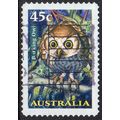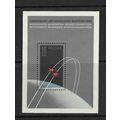Poperinge, W. Flanders, Belgium - Talbot House front - postcard
- Condition : Used
- Dispatch : 2 Days
- Brand : None
- ID# : 93647562
- Quantity : 1 item
- Views : 195
- Location : United Kingdom

- Seller : justthebook (+1703)
- Barcode : None
- Start : Sat 23 Feb 2013 20:41:01 (BST)
- Close : Run Until Sold
- Remain : Run Until Sold
More Listings from This Seller view all
Seller's Description
- Postcard
- Picture / Image: Talbot House - 43 Gasthuisstraat, Poperinge - a British Museum & club from World War 1
- Publisher: the House?
- Postally used: no
- Stamp: n/a
- Postmark(s): n/a
- Sent to: n/a
- Notes / condition:
Check out my !
Please ask if you need any other information and I will do the best I can to answer.
------------------------------------------------
Postage & Packing:
UK (incl. IOM, CI & BFPO): 99p
Europe: £1.60
Rest of world (inc. USA etc): £2.75
No additional charges for more than one postcard. You can buy as many postcards from me as you like and you will just pay the fee above once. (If buying postcards with other things such as books, please contact or wait for invoice before paying).
Payment Methods:
UK - PayPal, Cheque (from UK bank) or postal order
Outside UK: PayPal ONLY (unless otherwise stated) please. NO non-UK currency checks or money orders (sorry).
NOTE: All postcards are sent in brand new stiffened envelopes which I have bought for the task. These are specially made to protect postcards and you may be able to re-use them. In addition there are other costs to sending so the above charge is not just for the stamp!
I will give a full refund if you are not fully satisfied with the postcard.
----------------------------------------------
Text from the free encyclopedia WIKIPEDIA may appear below to give a little background information (internal links may not work) :
*************
Poperinge (also spelled Poperinghe in the past) is a municipality located in the Belgian province of West Flanders, Flemish Region, and has a history going back to mediaeval times. The municipality comprises the town of Poperinge proper and surrounding villages. The area is famous for its hops and lace.
Poperinge is situated about 8 miles to the west of Ieper/Ypres. The region is famous for growing hops and furnishes 80% of Belgian production. The town is home to the national hop museum and is called the hop capital - hoppe stad in Dutch, a play on hoofd stad, the word for capital. A triennial hop festival and parade is held in the month of September. The local brew is known as Hommel (which means hops in the West Flanders dialect).
The carillon in the tower of the town's oldest church, Sint-Bertinuskerk, was noted as one of the most beautiful in Flanders in mediaeval times. It was destroyed during warfare in 1677 and restored in 1781.[2]
Poperinge is twinned with
- Zatec in the Czech Republic, since 1964
- Wolnzach in Germany, since 1965, in recognition of which the town was presented with a traditional German maypole in 1976
- Hythe, Kent in England and Berck in Nord-Pas de Calais, since 1980[3]
- Rixensart in Walloon Brabant, Belgium, since 1990
Poperinge is the birthplace of Dirk Frimout, Belgium's first astronaut, after whom the town park is named.
Archaeological finds in the area date local habitation back to Neolithic times. Under the Romans a link was made to it from the road between Cassel and Aardenburg. In the time of the Franks it appeared under the name Pupurningahem and was made subject to the ecclesiastical benefice of Saint Omer in the mid-7th century. The Count of Flanders, Dietrich of Alsace, granted the town a charter in 1147 at the request of the abbot. From this time it began to thrive as a cloth-making centre and, in order to accommodate the growing population, the churches of Saint John and of Our Lady were added in 1290 to the already existing Sint-Bertinuskerk.
In 1322 Louis de Nevers forbade cloth-making outside Ieper, which inclined the citizens to join the revolt against him the following year. Nor did they ever submit to this restraint on their prosperity and were forever finding new ways to evade the restriction.[4] Their resistance during this period gained them the nickname of keikoppen (cobble-heads), a term first recorded in 1341, when the Ieper militia took revenge on the town.
During the disturbances associated with the Hundred Years War, Poperinge suffered from the shifting allegiances of the Counts of Flanders and their commercial consequences. When they supported the French, the wool trade with England was interrupted. In the course of the consequent revolt, the town was sacked and burned by French troops in 1382. Then in 1436 it suffered the same fate from an English army. In 1513, at a time of declining prosperity, much of the town was again destroyed by fire and once more in 1563. During this period Poperinge was stirred up to support the Protestant cause and took part in the iconoclastic fury of 1566. It was in the consequent fighting and persecution that the town and its trade were finally ruined.
Matters were made worse by the wars between the French and the Dutch for control of the region. By the treaty of Nijmegen in 1678 the town passed into French hands and then returned to the Spaniards by the treaty of Ryswick in 1697, before being ceded to the Austrians in 1713 by the treaty of Utrecht. In 1794 its was absorbed by revolutionary France into the département of Lys. Following the defeat of Napoleon it was included in the United Kingdom of the Netherlands, from which Belgium revolted in 1830. Since then Poperinge has repaired its fortunes by concentrating on hop-production, the growing of which was first introduced in the 15th century.[5]
During World War I, the town was one of only two in Belgium not under German occupation. It was used to billet British troops and also provided a safe area for field hospitals. Known familiarly as 'Pop', it was just behind the front line and formed an important link for the soldiers and their families, especially via the Talbot House. A grim reminder of that time remains within the town hall, where two death cells are preserved, and outside in the courtyard, where there is a public execution post used by firing squads. Another reminder is the location of a number of military cemeteries on the outskirts of the town with the graves of Canadian, British, Australian, French, German, US and Chinese servicemen.
type=printed postcards
theme=topographical: rest of the world
sub-theme=europe
county/ country=belgium
number of items=single
period=1945 - present
postage condition=unposted
Listing Information
| Listing Type | Gallery Listing |
| Listing ID# | 93647562 |
| Start Time | Sat 23 Feb 2013 20:41:01 (BST) |
| Close Time | Run Until Sold |
| Starting Bid | Fixed Price (no bidding) |
| Item Condition | Used |
| Bids | 0 |
| Views | 195 |
| Dispatch Time | 2 Days |
| Quantity | 1 |
| Location | United Kingdom |
| Auto Extend | No |




 for 1 item(s)
for 1 item(s)
















